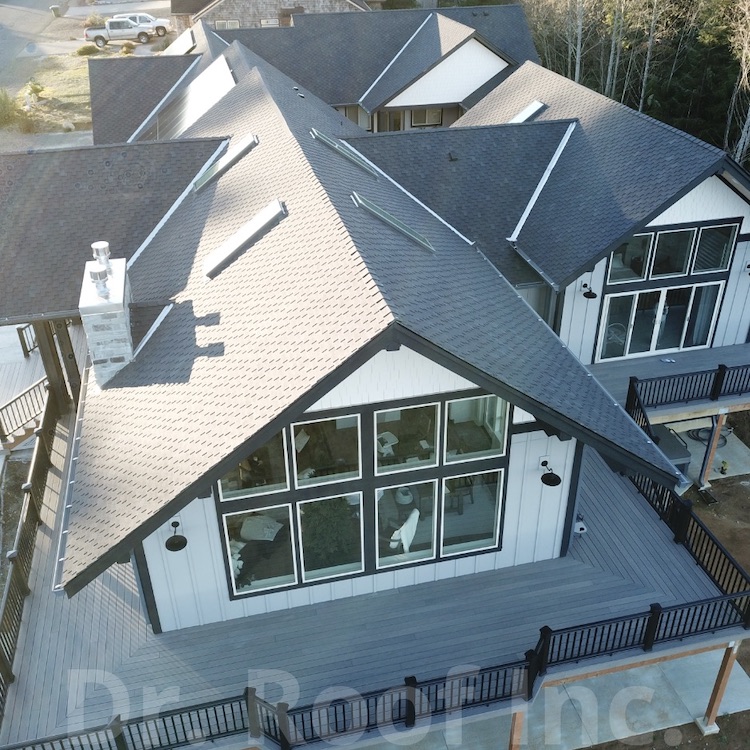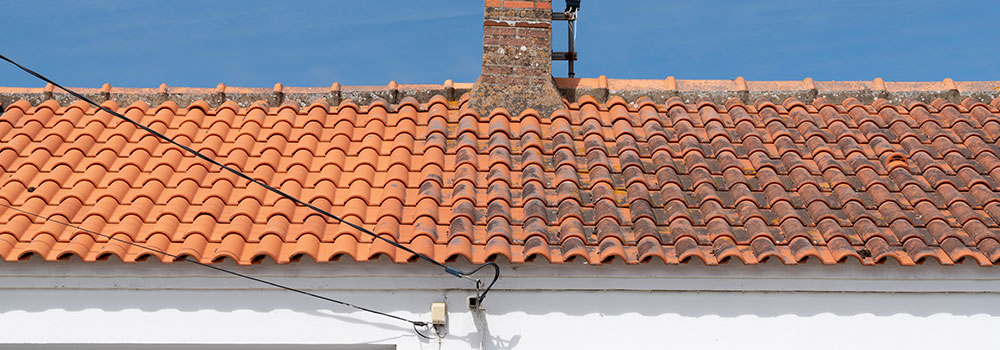Roof Moss in Vancouver, Washington
The Pacific Northwest gets a lot of rain, and a lot of rain means a lot of moisture. Moisture spells trouble for residential roofs. Vancouver, WA homeowners may spot moss on their roofs occasionally, and despite the fairy-tale appearance, that moss can cause a lot of damage to the home.
Ever seen black streaks on a residential rooftop in the area? While the marks look like mold or mildew, they’re algae. The algae are dark because they use pigment to protect themselves from the sun’s harmful ultraviolet rays. By the time homeowners notice the algae, it’s likely been there for months already.
Don’t despair, just because there’s moss or algae on the roof doesn’t mean there’s extensive damage.
Roof Moss: A Moisture Issue
The Pacific Northwest climate provides the perfect environment for moss, algae, and fungi to grow on residential roofs. Left alone, the plants cause degradation of most roofing materials. Moss even degrades asphalt and wood, two of the most popular roofing materials in Vancouver, WA.
Homeowners should address the issue as soon as possible because moss will start as a thin layer between shingles. However, after a while, the moss will grow and lift the shingles from the roof’s surface. This lifting allows moisture to seep underneath the shingles. The moisture can lead to wood rot, shingle degradation, and leaks.
How to Handle Roof Moss in Vancouver, WA
- If homeowners notice moss or algae on their roofs, they should contact a roofing contractor to take care of the problem.
- Never attempt to work on the roof alone. Save that energy and time for a safer home improvement project.
- Do not use a power washer to remove the moss from the roof. Most people do not have the skill required to avoid forcing water underneath the roof’s shingles. Clearing moss off of the roof with a pressure washer may cause more problems than the moss itself!
- If the homeowner is an experienced contractor, he or she may try applying a mixture of bleach and water to the moss to kill it. However, they should still contact a roofing company to remove the debris from the roof to be safe.
- If the moss has been on the roof for a while, do not walk on it. The moss may have degraded the roof and weakened it. Make sure to get a roof inspection to avoid falling through the ceiling!
- Ask the roofing contractor to install strips of copper-coated sheet metal on both sides of the roof. Copper is toxic to moss and algae, and it’s a great way to prevent future moss growth.
- Trim any tree limbs that hang over the roof. Shaded roofs develop moss much faster than sunlit roofs. Keeping the roof as dry as possible is essential for avoiding moss and algae growth.
- Clean the roof on an annual basis, at least. Moss can’t grow without a substrate to hold on to. Accumulated debris such as dirt or leaves can act as a substrate for algae and moss. Make sure to hire a professional roofing company for yearly maintenance to prevent costly roof repairs or replacements.
- Any airflow should be directed down the roof’s slope so that debris doesn’t get under the shingles.
- Keep all gutters clean and well-maintained. Many roofing companies will clean gutters as part of an annual roof maintenance job. Make sure that any upper gutters don’t drain directly onto a lower roof surface. The downspout should extend to the lower gutter.
Best Moss-Resistant Roof Types for Vancouver, WA Homes
In the Pacific Northwest, homeowners cannot avoid moisture. However, they can undoubtedly install or replace a roof with a material that’ll help prevent moss growth.
Metal Roofs
The best roof for avoiding moss and algae growth is a metal roof. Metal roofs are one of the most expensive options for Vancouver, WA homes, but they have plenty of advantages over asphalt and wood shingle roofs. For example, metal roofs don’t allow for much (if any) moss growth because of its slick surface and lack of suitable substrate. Additionally, metal roofs shed water quickly, which prevents moisture accumulation. Metal roofs also help lower utility bills by keeping the home cool in the summer.
Zinc-Treated Composition Roofs
Zinc is also toxic to moss and algae and cheaper than copper. Zinc-treated composition shingles can help prevent moss and algae growth. Roofing companies can apply a water-based treatment to the roof to kill any existing moss. Over a few weeks, the moss will turn yellow, then brown, then black. The treatment soaks into the roof’s shingles to prevent any new growth.
Copper-Treated Cedar Shake Roofs
As mentioned before, copper is toxic to moss. Cedar shake roofs are a popular roofing material here in Vancouver, WA. However, wood is susceptible to moisture damage. Not only does a copper-based treatment control moss and algae growth, but it reduces warping and splitting caused by the rapid changes in moisture we experience here in the Pacific Northwest. Additionally, copper-based treatments double as a pesticide, which prevents damage from pests like termites or powderpost beetles.
How Can Dr. Roof Help?
The professional roofers at Dr. Roof, Inc. have decades of combined contracting experience. We have thousands of satisfied customer references, and we are committed to providing the best roofing services in Vancouver, WA. If mold, moss, or algae have taken root on the family home’s roof, contact Dr. Roof today for a free estimate and answers to all of your roofing questions. We offer lifetime labor and material warranties, and we only use high-quality materials. Additionally, our warranties are transferable in case of relocation. Call today!


